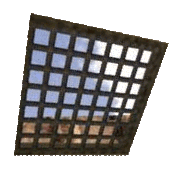|
|
|
|
| Re: Empire [message #98639 is a reply to message #98638] |
Thu, 29 May 2025 09:48   |
 |
 Wayne Parham
Wayne Parham
Messages: 19001
Registered: January 2001
|
Illuminati (33rd Degree) |
|
|
I totally agree with you, Bruce.
And an extra mention on the tariff stuff. It's tricky but, in my opinion, we probably have needed to do something about the trade imbalances for decades.
Fair trade is a good thing. But lopsided trade is just stupid for us to have allowed. Not sure why we allowed it for so long. Now it feels very difficult to "dial it back." It's looks pretty tricky.
And another adjacent matter - protectionism. I used to have a laissez-faire attitude towards that. I thought there was no need to protect an American industry. When we make the best stuff at the best price, no problem.
Even when the Japanese started beating us with better cars in the late 1970s, I thought that was our own fault. We were making junk and their cars were better. German cars were better too. My opinion back then was that we needed to get off our butts and design and build better cars. I thought we made better cars for decades, especially in the 1960s. My opinion was that we just needed to rise to the challenge of the 1970s and 1980s.
Eventually we self-corrected. Our car manufacturers did begin making better cars and by the 1990s, we were competitive again. So the beating we took in the 1980s was really a self-inflicted wound. Too much government pressure to shift design goals in the 1970s, and too slow to respond by the car manufacturers.
At least that's how I saw it.
But I see something else now. The Chinese government subsidizes a market, taking a loss in that market for a lengthy period of time. Essentially, the American companies producing products in the market China wants to control are under economic attack. It is economic siege warfare.
In the beginning of the siege period, Americans (and people in other countries, for that matter) - both individuals and companies needing supplies - shift from buying American products under siege and instead purchase the low-cost Chinese products. Often times, the Chinese products are of poor quality because the Chinese have little experience at first. But the cost is so low, American companies buying the inferior import products will make do with it. In many cases, it is repaired, retooled or otherwise made serviceable after import. The cost is so low, it is still economically viable.
After a while, the American companies making products in the market under attack slow production or cease entirely. We have lost a lot of industries that way in the last few decades. China has successfully monopolized several markets using that strategy.
And now that I look back, I realize the situation in Japan was somewhat similar in the 1960s and 1970s. It wasn't done exactly the same way - Japan wasn't subsidizing their industries - America did it as economic assistance. We were still helping Japan get on its feet after WWII.
I'm not sure I feel the same way about that as I do about the invasive market take-overs that China has done. But the results to the American economy were probably the same. American car companies eventually came back after a pretty bad beating, but the American consumer electronics market really never recovered.
So I think we must be much more careful in the matters of trade going forward. I like it when we can be helpful, as I think was initially the case in Japan. But I also think we have to protect our own interests. Otherwise, we'll find ourselves being unable to do things we once were great at. We'll be "out of shape."
|
|
|
|
|
|
|
|
|
|
|
|
| Re: Empire [message #98646 is a reply to message #98643] |
Fri, 30 May 2025 10:55   |
 Rusty
Rusty
Messages: 1414
Registered: May 2018
Location: Kansas City Missouri
|
Illuminati (3rd Degree) |
|
|
To anyone interested, it might be useful for your edification to listen to these two senior economists that I admittedly reference often. Because they are two of our greatest living national treasures we have whom the general public has no knowledge of. Unfortunately.
Hudson & Wolff. Here they go over the core of capitalism. Its origins, promises, successes and limitations and hopefully its demise, (particularly in the form its in currently). They describe how classical economics and its explanation of value theory has been manipulated into the opposite of what the classical economists Adam Smith and David Ricardo described the free market being. Free from economic rent! Free from the then parasitic renters class making money in their sleep and siphoning capital away from useful benefit to their own conspicuous consumption. Today the equivalent are the banking financier's and Wall Street.
They explain how Karl Marx and his remarkable volumes of capitalism took value theory from Smith & Ricardo and explained further the worker relationship with the capitalist and their surplus exchange, trade consolidation, monopolization and how industrial capitalism could become socialism in its final development. Never to be realized of course.
Listening to these two gives a foundation to understand where our country and the other capitalist countries following current neoliberal financial capitalism are experiencing the trials and tribulations that are degrading our way of life. Taking particular note in China's successful development is that their financial structure keeps banking as a public-state owned entity. Eliminating the capitalist monopoly on finance opens up the means to preventing the free lunch, money in their sleep financial class from hijacking the economy as ours has been made.
Economics and geopolitics mimic one another. So its little wonder from our finance capitalist economics how our country has in its dominant world character come to monopolize its influence through colonization, militarism, Imperialism etc. to maintain that dominance over the years.
It has become a burden to the world. Which countries now once part of the 3rd world are strategically aligning to counter our dominance.
https://www.youtube.com/watch?v=loxwfNQw17o
|
|
|
|
|
|
|
|











